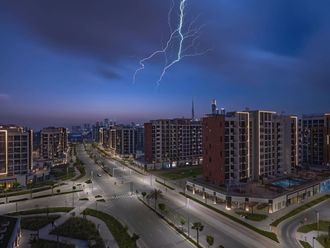
At the end of 2010, Dubai’s Real Estate Regulatory Agency (Rera) announced that
it would introduce the Real Estate Investor Protection Law and that it would do so "very soon".
As of this month, at the time this column went to press, the law had not been published. Nor had official drafts of the law been circulated with further updates as to its scope or timeline been issued. Yet the investor community is eager for this law to take effect, though very little is known about the protection it promises to investors, as its title suggests.
Since all that has been announced about this law has been in the way of comments from Rera and government officials in the media, it is difficult to ascertain its exact nature and scope. Some question whether the law will ever be introduced. Also, it is unclear as to how much of what investors want this law to address will be incorporated in its final form. As such, whatever comments are made about it are speculative in nature. Perhaps the best way to speculate is to analyse statements made by public officials and industry commentators.
Rera officials have described this law to include several provisions. One relates to penalising developers for delaying delivery of projects, in the form of fines in increments of Dh500,000, potentially amounting to millions of dirhams. Another provision may relate to penalising developers for "committing fraud or falsifying statements", such as "falsifying [construction] progress report". New regulations for property handover and corresponding standards for quality control have also been mentioned. Introduction of a grading system to assess and grade developers has been discussed. And so has regulation of property valuation professionals. Revamping of the escrow services laws is also being contemplated.
Rera has also alluded to possibly introducing a standard sales and purchase agreement, which all developers will be required to use. Among other things, this new template is supposed to include an equal penalty on both developers and investors for breaching their obligations. This, for example, would require developers to pay a penalty for delivering properties late. Another provision in the template will allegedly require developers to pay their 1 per cent of the property registration fee, instead of passing it on to purchasers.
Whatever the final form of this law may be, the utility of at least some of the alleged provisions in it is questionable. One, the new template of the sales and purchase agreement is supposed to apply to new contracts, and not existing ones. Yet the majority of disputes in which investors feel they need protection, relate to existing contracts. Two, some of the provisions are already adequately addressed in other laws. The property registration fee, codified in Dubai Law No. 21 of 2006, is one example. Similarly, the penalties to be imposed on developers, either for delivering properties late or for falsifying project status reports, are covered by the UAE Federal Law, in existence since 1987. Therefore, what is required is the enforcement of the existing laws, instead of introducing new ones. This, of course, is subject to the Dubai Courts applying federal laws, as opposed to only applying local Dubai laws.
Ludmila Yamalova is managing partner, of HPL Yamalova and Plewka JLT












